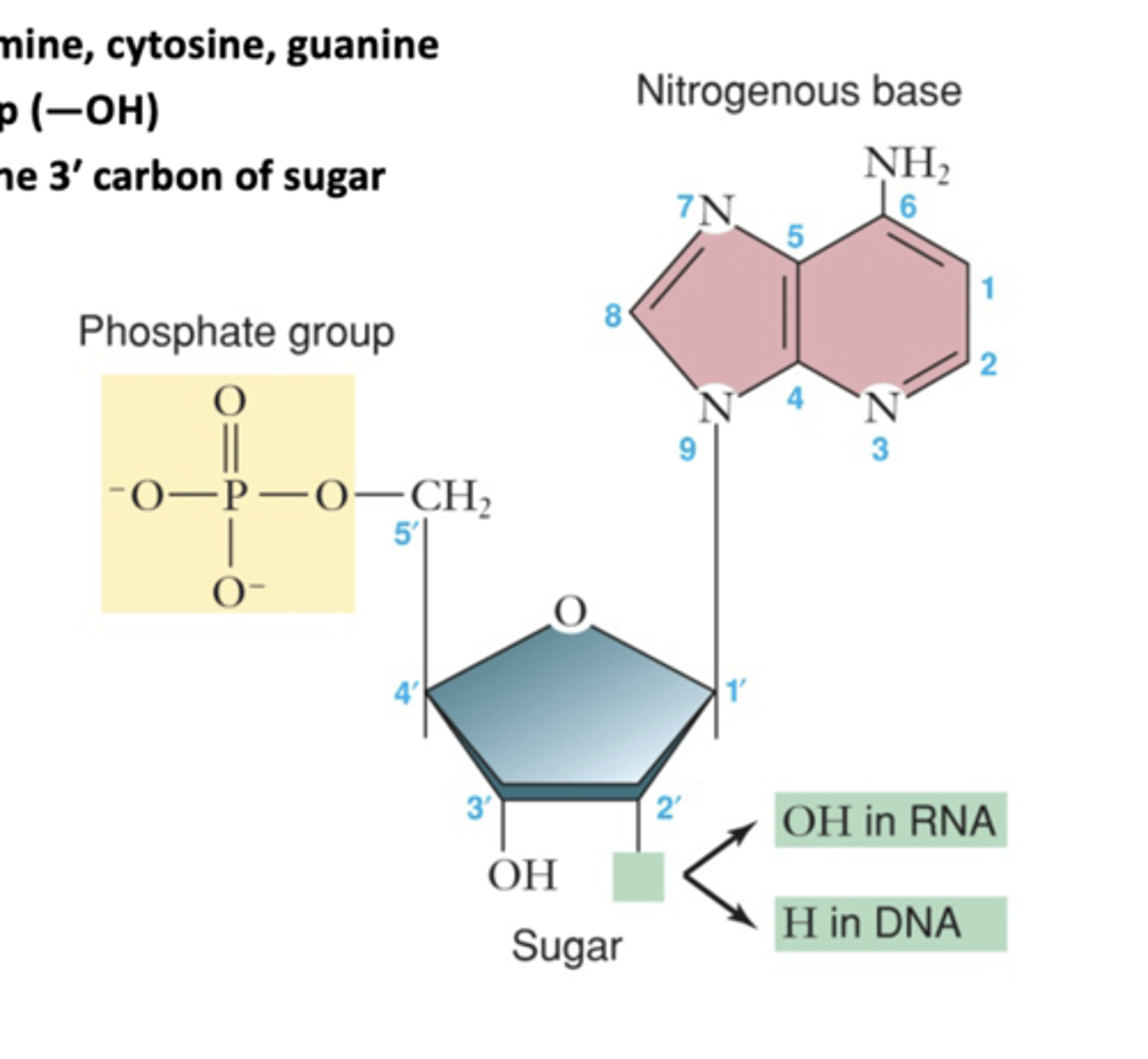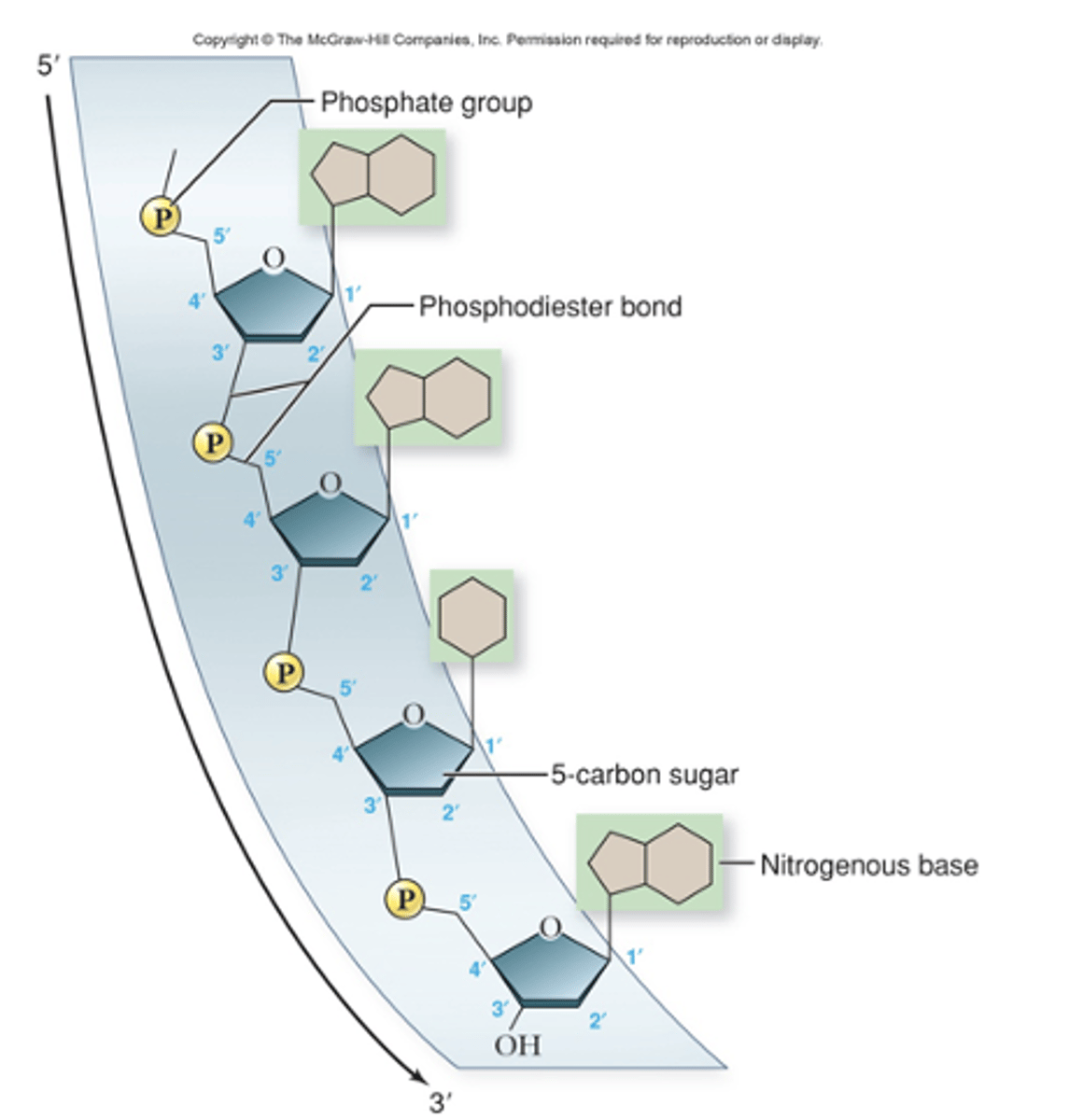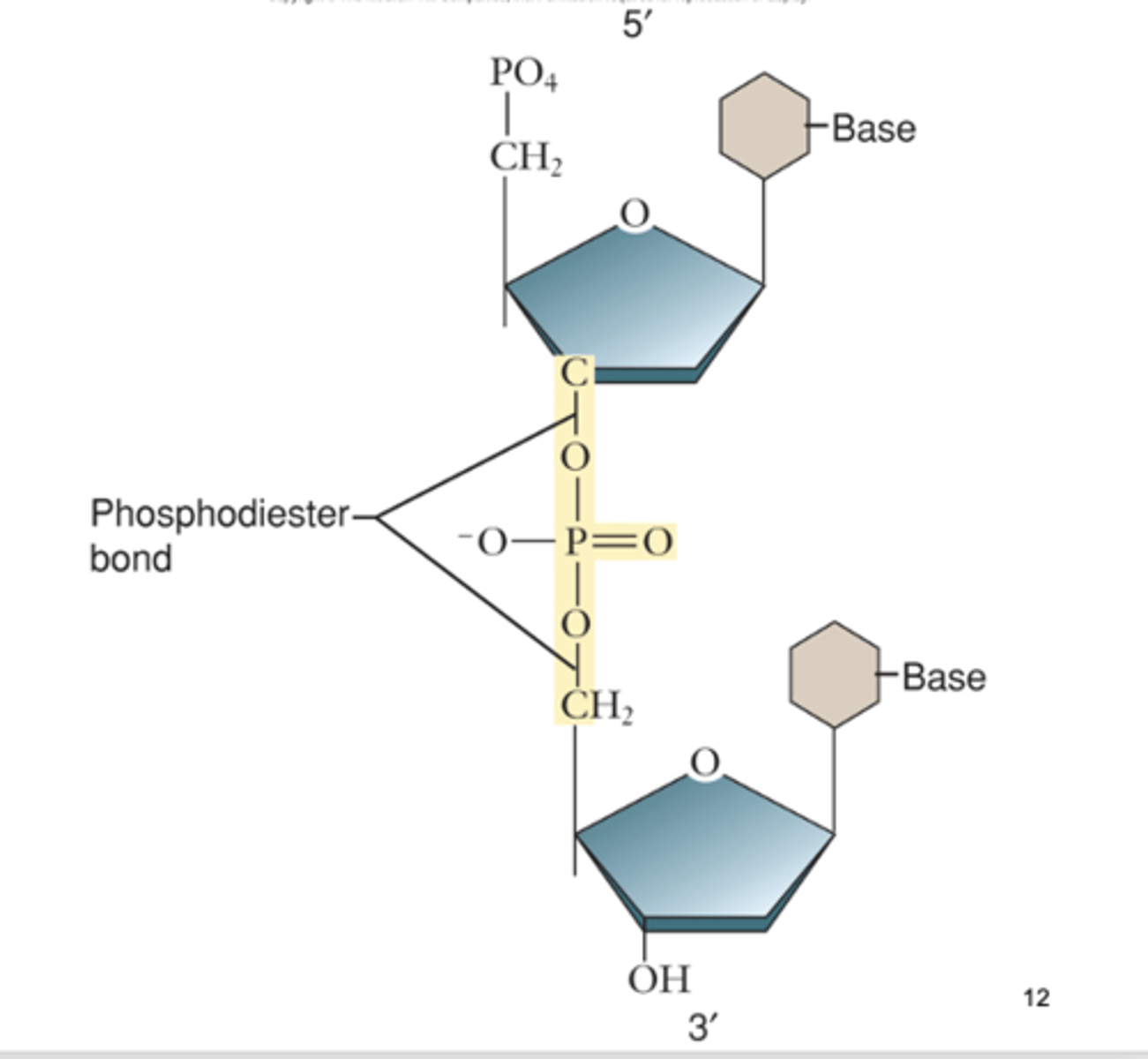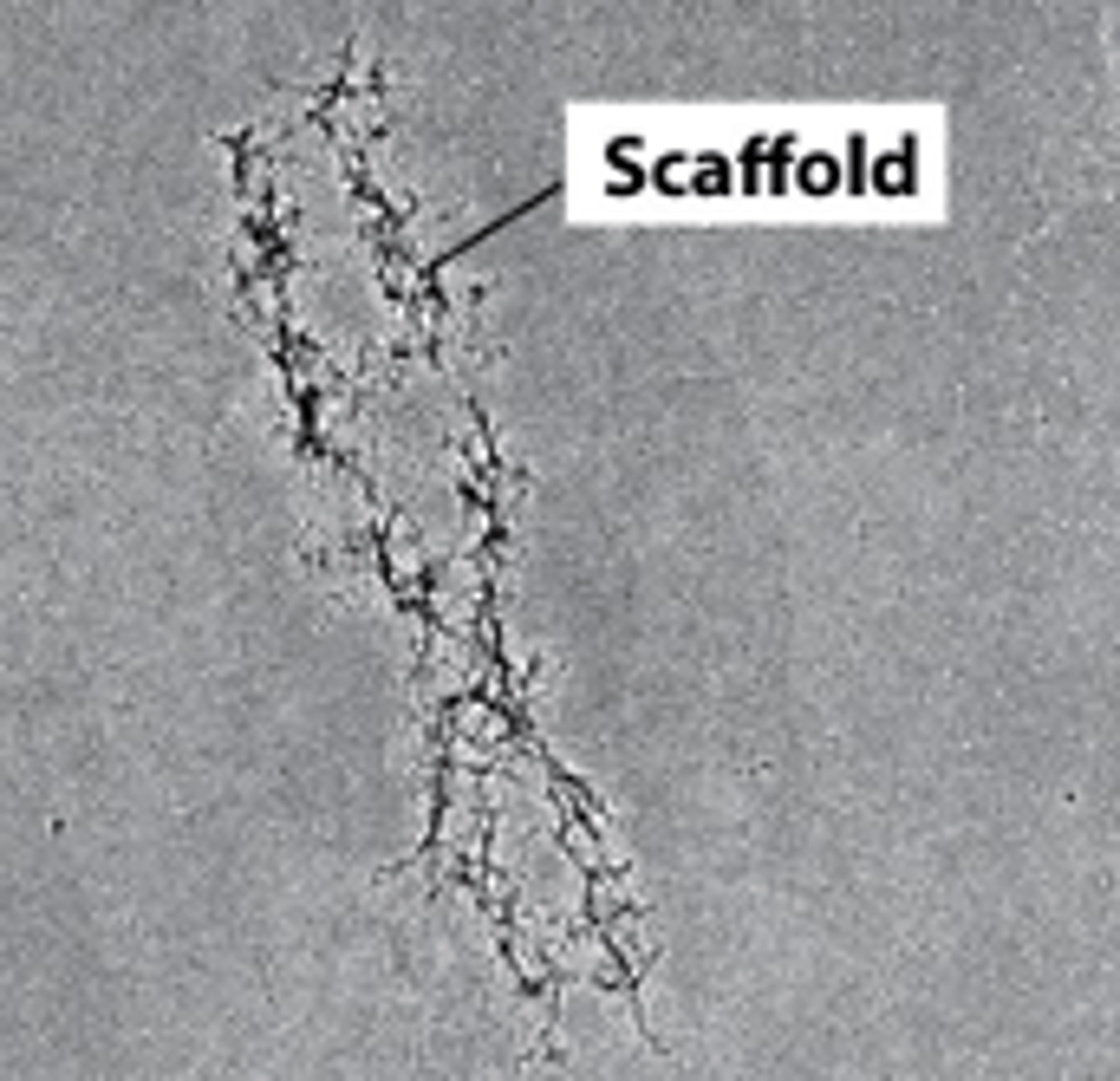DNA & Molecular Structure of Chromosomes- Genetics
1/27
There's no tags or description
Looks like no tags are added yet.
Name | Mastery | Learn | Test | Matching | Spaced |
|---|
No study sessions yet.
28 Terms
Genetic Material must
replicate (genotypic function),
control the growth and development of the organism (phenotypic function)
allow the organism to adapt to changes in the environment
chromosomes contain
genes, proteins and nucleic acids
genetic information is encoded in
DNA
DNA is usually
- double stranded
- adenine paired with thymine
- guanine paired with cytosine
RNA is usually
single stranded, uracil instead of thymine
DNA structure
DNA is a nucleic acid
Composed of nucleotides
5-carbon sugar called deoxyribose
Phosphate group (PO4)
Attached to 5′ carbon of sugar
Nitrogenous base
Adenine, thymine, cytosine, guanine
Free hydroxyl group (—OH)
Attached at the 3′ carbon of sugar

the chain of nucleotide has a WHAT orientation
5' to 3'
nucleotide
a sugar, a nitrogenous base, and phosphate group
nucleoside
a sugar and nitrogenous base only
chargaffs rule
A=T and C=G, always equal amount of proportion between the paired nucleotides
erwin chargaff determined
chargaffs rule
Rosalind Franklin
discovered DNA 3D shape
james watson and francis crick- 1953
determined it was a double helix
supercoiling
-dna molecules in vivo are supercoiled
- occurs when DNA molecules of one or both strands are cleaved
negative supercoiling
if it rotates in opposite direction of DNA (left handed), many biological function can only be carried out if DNA is negatively supercoiled
polymerization of a DNA strand
-2 strands are polymers of nucleotides
- phosphodiester backbone- repeating sugar and phosphate units joined by phosphodiester bonds
- 2 strands wrap around 1 axid
- antiparallel- 1 strand runs 5'-3' and the second strand runs 3'-5'

phosphodiester bond
- bond between adjacent nucelotides
- formed between the phosphate group oe one nucelotide and the 3'- OH of the next nucleotide

eukaryotic chromsomes contain
huge molecules of DNA that are highly condensed during mitosis and meiosis
centromeres and telomeres of eukaryotic chromosomes have
unique structures
each chromosome contains
a single large molecule of DNA
Chromatin
complex of DNA, chromosomal proteins, other chromosomal constituents
histones
basic (positively charged at neutral pH)
non-histone chromosomal proteins
acidic (negatively charged at neutral pH)
histones also
play a major structural role in chromatin, histones form nucleosomes with DNA
nucleosomes
- packaged DNA exists in three forms
- nucleosome cores, which contain 146 nucleotide pairs, as well as linker DNA
- nucleosome core is protected by histones from endonucleases
nucleosomes play a role in transcription
- structure of nucleosomes changes between transcriptionally active and inactive regions
- tails of histone molecules protrude from the nucleosome, accessible to enzymes that add or remove methyl/acetyl groups
Human Metaphase Chromosomes
- Non-histone chromosomal proteins form a scaffold that condenses into into 30 nm chromatin fibers
- subculture of 30 nm fibers is 11nm nucleosomes interacting and condensing with each other
scaffold
is the central core of a chromosome
